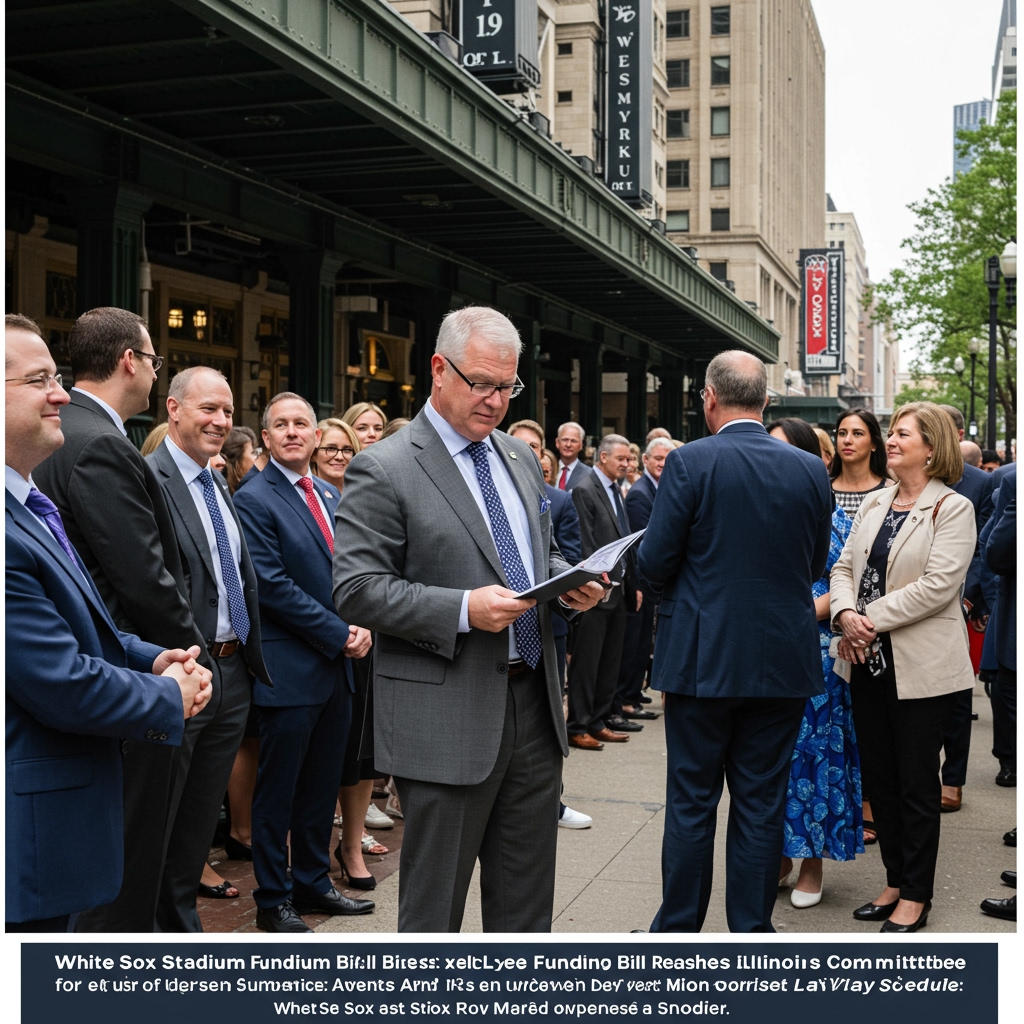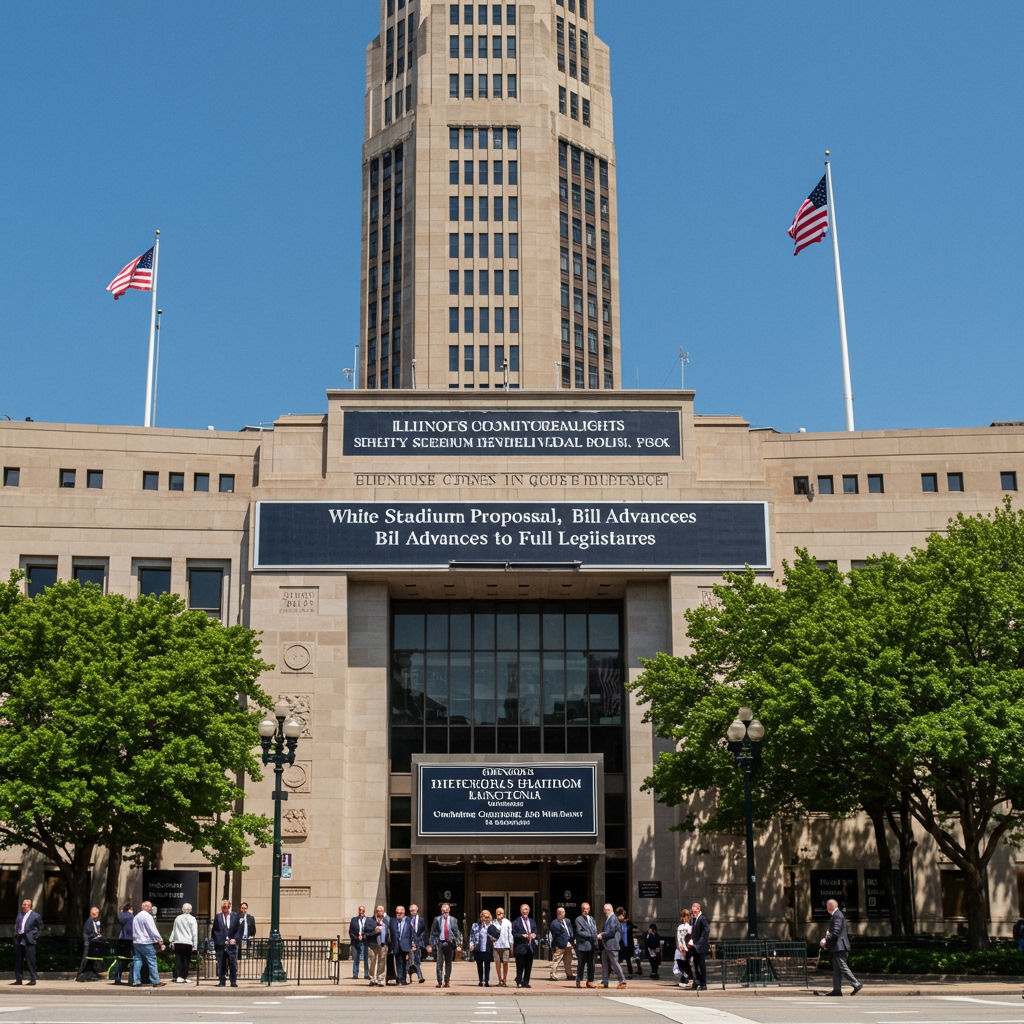In a significant development for the future of Chicago’s professional baseball landscape, a crucial committee within the Illinois General Assembly today voted to advance a legislative proposal designed to provide public financing support for a potential new stadium for the Chicago White Sox. The advancement of this measure marks a critical step in the lengthy and complex process required for major infrastructure projects involving public funds, particularly those tied to professional sports franchises.
Bill Structure and Funding Mechanism
The core of the legislative proposal centers on the Illinois Sports Facilities Authority (ISFA), a governmental entity established in 1987 to facilitate the construction of what was then Comiskey Park (now Guaranteed Rate Field) and later the renovation of Soldier Field. The bill proposes a significant restructuring of the ISFA, empowering the authority to issue new bonds. These new bonds would be leveraged against existing revenue streams that the ISFA currently utilizes. The objective is to dedicate a portion of these funds, potentially alongside new sources or mechanisms outlined in the full bill text, towards contributing to the estimated $1.2 billion cost associated with building a new ballpark for the White Sox.
While specific details of the restructuring and the precise nature of the ‘existing revenue streams’ are subject to the final legislative language and ongoing negotiations, the foundational concept involves utilizing established income channels managed by ISFA to secure the financing needed for the bond issuance. This approach aims to tap into existing governmental revenue flows rather than creating entirely new taxes or dedicated streams for this specific project, though the overall impact on state finances and priorities remains a central point of discussion.
The Proposed Location and Project Scope
The site earmarked for the potential new stadium is The 78, a sprawling development project located in the South Loop neighborhood of Chicago. The 78 is envisioned as a transformative mixed-use district, and the inclusion of a state-of-the-art sports facility like a major league baseball stadium is seen by developers and proponents as a potential anchor that could accelerate growth and bring significant economic activity to the area. The estimated total cost for this ambitious project, encompassing the stadium structure itself and associated infrastructure, stands at approximately $1.2 billion. This figure represents the overall investment required, a substantial sum necessitating a combination of private and public funding.
The Ownership’s Stance: Public Funds Deemed Essential
Representatives for the White Sox ownership group, led by Chairman Jerry Reinsdorf, have consistently articulated the position that securing public funds is absolutely essential for the proposed new stadium project to move forward. The estimated $1.2 billion investment is substantial, and the ownership views a private-public partnership as the only viable path to financing and completing the project at The 78 site. This stance underscores the dependency of the team’s plans on securing state-level financial support through the legislative process initiated with this bill.
The private-public partnership model implies that while the team ownership would contribute a significant portion of the cost, a substantial amount would need to be sourced through public means, potentially facilitated by the ISFA restructuring and bond issuance proposed in the bill. The exact division of the $1.2 billion between private and public contributions is a key element of the ongoing negotiations and public debate surrounding the proposal.
Next Steps and Anticipated Debate
The successful vote in the legislative committee today represents a crucial procedural hurdle cleared. The measure now advances from the committee stage to the full legislative body – either the House or Senate, depending on where it originated – for further consideration. This transition moves the proposal into a broader arena where it will face more extensive scrutiny, debate, and potential amendments from a larger group of elected officials.
While advancing from committee is a positive signal for proponents of the stadium plan, it is by no means final approval. The bill’s passage through the full General Assembly is anticipated to be a complex and potentially contentious process. Key areas of debate will likely include: the specific amount of public investment requested, the terms and repayment structure of the new bonds, the potential impact on existing ISFA obligations and state finances, equitable distribution of state resources, and the economic benefits and risks associated with the project. Legislators will weigh the potential economic stimulus and benefits of a new stadium at The 78 against other state funding priorities and potential concerns regarding taxpayer exposure.
Historical Context and Future Outlook
The ISFA has a history of involvement in funding Chicago’s major sports venues, having financed the current White Sox home and contributed significantly to Soldier Field’s renovation. This new proposal seeks to adapt that model for a modern, large-scale development like The 78. The current stadium, Guaranteed Rate Field, while having undergone renovations, is approaching an age where teams often explore new facilities to enhance revenue streams and fan experience.
The push for a new stadium at The 78 aligns with broader urban development goals for the South Loop. However, securing the necessary legislative approval for the public funding component remains the primary immediate challenge. The coming weeks and months in the Illinois General Assembly will be critical in determining whether the proposal gains enough support to become law, ultimately shaping the future home of the Chicago White Sox and impacting the development trajectory of one of Chicago’s most significant land parcels.














